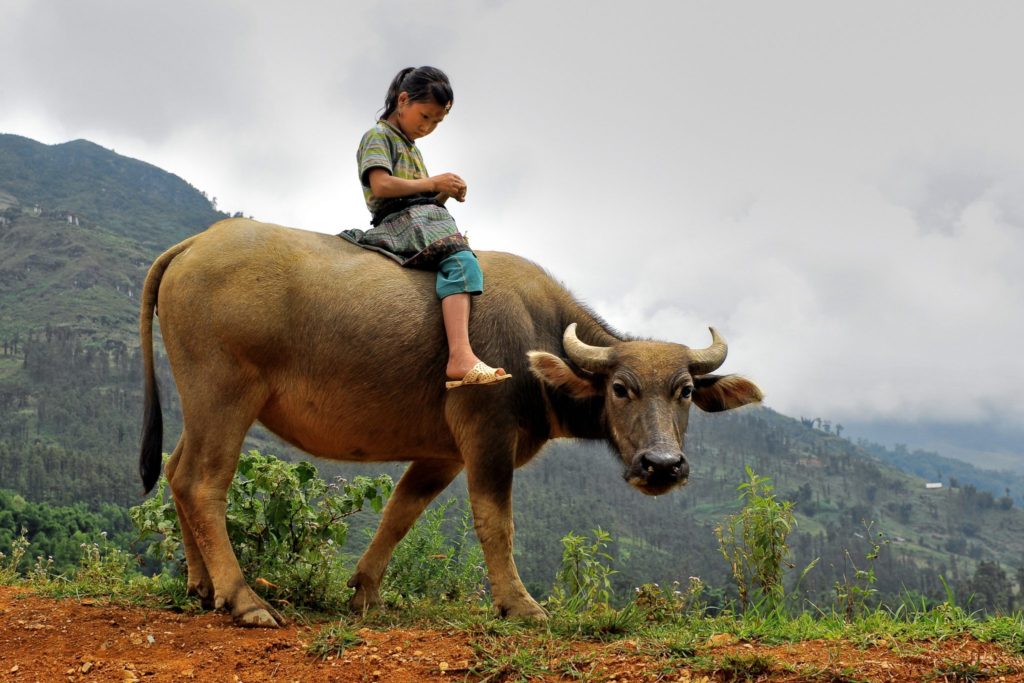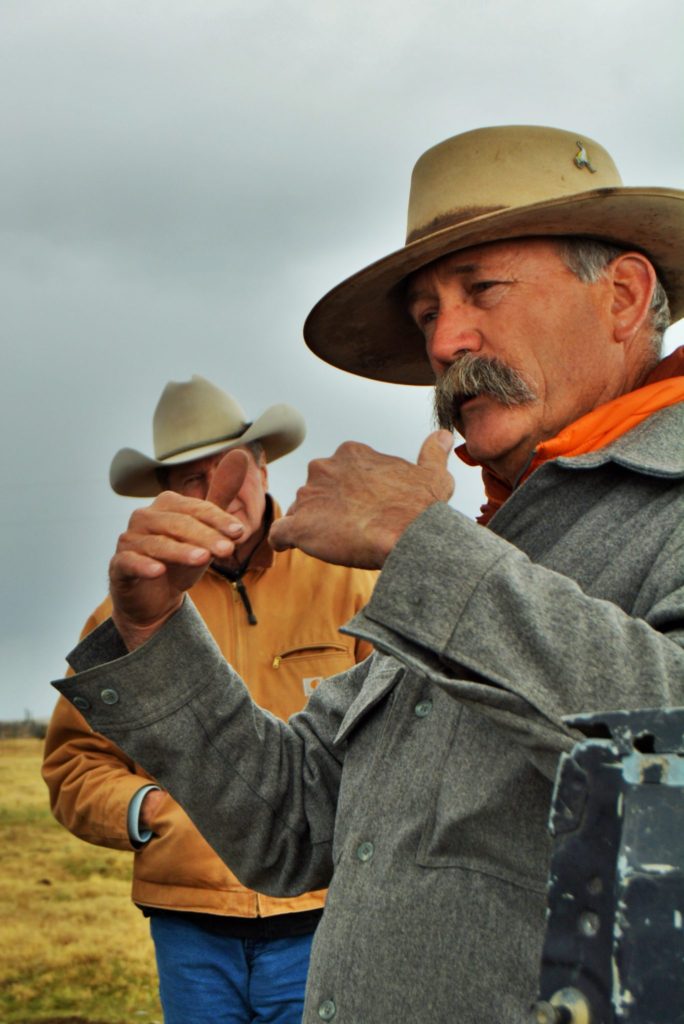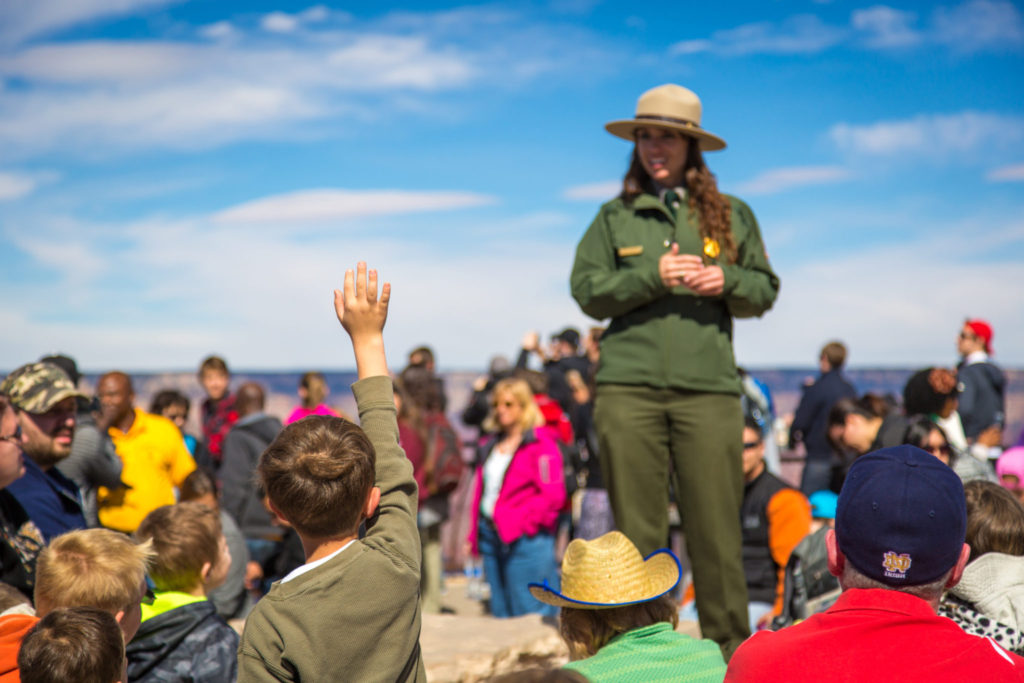Natural resource problems such as climate change, biodiversity loss, land degradation, food security, and water availability are increasingly complex and threaten human livelihoods and sustainability. These complex problems are best explored across disciplines that examine social-ecological phenomena at different scales and at multiple levels. The multiple disciplinary approach to human dimensions of conservation requires perspectives on individuals, social groups, organizations, societies and cultures. It is the goal of the Department of Human Dimensions of Natural Resources to represent these multiple social science perspectives and to address critical issues in conservation in innovative, integrative ways. Our research is directed toward informing decisions that sustain natural resources and the services that are derived from those resources.
View Current HDNR Research Projects.


Several faculty in the department work at the nexus between environmental conservation and sustainable development. Our research focuses on the development of natural resource management systems that simultaneously seek to support sustainable livelihoods for local people, biodiversity conservation and resilient ecosystem processes. Projects include work on the relationship between people and protected areas, conservation of ecosystem services and wildlife on working ranch lands, collaborative resource management programs, small-scale fisheries, and traditional ecological knowledge and biocultural approaches to conservation and development. Faculty conduct fieldwork on conservation and sustainable development in North America, East Africa, the Pacific, Latin America, and at the global level.
 Research in Ecosystem Services is focused on the effectiveness of conservation programs and policies and connections between nature and human wellbeing (i.e., ecosystem services). Current projects indlude: Estimating the avoided costs from investments in watershed health in Colorado, Analyzing drivers of land use change in Guatemala, Honduras and El Salvador, Integrated ecological-socioeconomic modeling of payments for ecosystem services impacts on watershed services in Mexico, Land tenure and payments for ecosystem services impacts in Ecuador.
Research in Ecosystem Services is focused on the effectiveness of conservation programs and policies and connections between nature and human wellbeing (i.e., ecosystem services). Current projects indlude: Estimating the avoided costs from investments in watershed health in Colorado, Analyzing drivers of land use change in Guatemala, Honduras and El Salvador, Integrated ecological-socioeconomic modeling of payments for ecosystem services impacts on watershed services in Mexico, Land tenure and payments for ecosystem services impacts in Ecuador.
 Our research in environmental communication addresses how practitioners can effectively convey and facilitate information dissemination about conservation to various audiences and stakeholders. The scope of this research draws upon numerous disciplines and topics, including environmental education, social marketing and persuasion theory, media, journalism and more.
Our research in environmental communication addresses how practitioners can effectively convey and facilitate information dissemination about conservation to various audiences and stakeholders. The scope of this research draws upon numerous disciplines and topics, including environmental education, social marketing and persuasion theory, media, journalism and more.
Recent projects vary in their scope and focus, from how to communicate climate change to national park visitors in the United States, to the transmission of local ecological knowledge between generations in rural Kenya, to identifying effective communication strategies for reaching affected homeowners following environmental disasters.
 Our research on environmental governance focuses on the processes and instruments through which governments and civil society mediate human-environment interactions at all levels of social organization. Our broad objectives are to advance understanding of the emergence, form, and function of environmental governance, and the politics surrounding changing relations of resource access and control. Our work is multidisciplinary, engaging social scientific perspectives spanning human geography, political science, political ecology, economics, and sustainability science in order to build theory, contribute to scientific debate, and inform policy and practice. Geographically, we have a strong international focus, particularly in the Pacific Islands, North America and Latin America. Current theoretical and topical areas of focus include: multi-level governance, scalar dimensions of environmental governance, multilateral environmental agreements, small-scale fisheries, marine protected areas, collaborative conservation, and payments for ecosystem services.
Our research on environmental governance focuses on the processes and instruments through which governments and civil society mediate human-environment interactions at all levels of social organization. Our broad objectives are to advance understanding of the emergence, form, and function of environmental governance, and the politics surrounding changing relations of resource access and control. Our work is multidisciplinary, engaging social scientific perspectives spanning human geography, political science, political ecology, economics, and sustainability science in order to build theory, contribute to scientific debate, and inform policy and practice. Geographically, we have a strong international focus, particularly in the Pacific Islands, North America and Latin America. Current theoretical and topical areas of focus include: multi-level governance, scalar dimensions of environmental governance, multilateral environmental agreements, small-scale fisheries, marine protected areas, collaborative conservation, and payments for ecosystem services.
 Broadly, our research on human dimensions of wildlife conservation involves the application of concepts and methods from the social sciences to understand human-wildlife relationships and interactions. We have a long history of working collaboratively with natural resource agencies and organizations, primarily in North America, to inform their wildlife management, planning, and decision-making efforts. Specific areas of interest include the dynamics of public values toward wildlife, multi-level views of wildlife-related thought and behavior, attitudes toward wildlife-related issues, and the social aspects of human-wildlife conflict. Recent projects have also begun to explore values toward wildlife across different cultures globally. As part of our department’s tradition in advancing this field of study, our faculty founded and currently serve as Editors of the international journal, Human Dimensions of Wildlife.
Broadly, our research on human dimensions of wildlife conservation involves the application of concepts and methods from the social sciences to understand human-wildlife relationships and interactions. We have a long history of working collaboratively with natural resource agencies and organizations, primarily in North America, to inform their wildlife management, planning, and decision-making efforts. Specific areas of interest include the dynamics of public values toward wildlife, multi-level views of wildlife-related thought and behavior, attitudes toward wildlife-related issues, and the social aspects of human-wildlife conflict. Recent projects have also begun to explore values toward wildlife across different cultures globally. As part of our department’s tradition in advancing this field of study, our faculty founded and currently serve as Editors of the international journal, Human Dimensions of Wildlife. Our department has a long history in supporting protected areas around the world through research and capacity-building. The scope of our research includes traditional topics related to visitor services and recreation, and has more recently progressed to include community-based conservation, stakeholder analyses, governance issues, role of protected areas in supporting livelihoods, non-compliance, and more. Domestically, our research in protected areas has emphasized “in our backyard” of the interior west and Rocky Mountain region in partnership with federal agencies as well as municipal open space programs. Internationally, our research spans multiple continents and regions, including Latin America, the Scandinavian region of Europe, East Africa, and the Pacific Islands.
Our department has a long history in supporting protected areas around the world through research and capacity-building. The scope of our research includes traditional topics related to visitor services and recreation, and has more recently progressed to include community-based conservation, stakeholder analyses, governance issues, role of protected areas in supporting livelihoods, non-compliance, and more. Domestically, our research in protected areas has emphasized “in our backyard” of the interior west and Rocky Mountain region in partnership with federal agencies as well as municipal open space programs. Internationally, our research spans multiple continents and regions, including Latin America, the Scandinavian region of Europe, East Africa, and the Pacific Islands.
 Recent wildfires in the western United States highlight the need for understanding the human dimensions of wildfire management, especially for policies and programs that affect property losses in the wildland urban interface (WUI). Since 2001 the USDA Forest Service, the Colorado State Forest Service, and the Joint Fire Science Program have funded human dimensions of wildfire research in the HDNR department. This systematic program of research seeks to identify practical steps for reducing the barriers to implementing defensible space behaviors at an individual and neighborhood level.
Recent wildfires in the western United States highlight the need for understanding the human dimensions of wildfire management, especially for policies and programs that affect property losses in the wildland urban interface (WUI). Since 2001 the USDA Forest Service, the Colorado State Forest Service, and the Joint Fire Science Program have funded human dimensions of wildfire research in the HDNR department. This systematic program of research seeks to identify practical steps for reducing the barriers to implementing defensible space behaviors at an individual and neighborhood level.
This research program has included managers and community homeowner association leaders; site assessments of residences; and social psychological surveys of homeowners in the WUI. Scientific journal articles, reports and presentations have explored the acceptability of alternative solutions for overcoming the barriers to full compliance with defensible space behaviors and gauged the practical utility of actions that are likely to reduce property losses.
 HDNR has a storied history of excellence in tourism research and application. Our research focuses on how humans recreate, consume, and connect to natural resources. Researchers in our department are involved in a myriad of projects including, but not limited to: barriers to outdoor recreation, amenity preferences, communication preferences, interpretation, sense of place, relationship between adventure and personal purpose, visitor satisfaction, heritage tourism, historical tourism, culinary tourism, ecotourism, agritourism, sustainable tourism development, tourism enterprise, multi-cultural perspectives, tourism theory, tourism policy, tourism planning, strategic tourism marketing, and international issues. Our faculty conduct fieldwork in tourism and recreation in North America, Central America, South America, Africa, the Pacific, and Eastern Europe.
HDNR has a storied history of excellence in tourism research and application. Our research focuses on how humans recreate, consume, and connect to natural resources. Researchers in our department are involved in a myriad of projects including, but not limited to: barriers to outdoor recreation, amenity preferences, communication preferences, interpretation, sense of place, relationship between adventure and personal purpose, visitor satisfaction, heritage tourism, historical tourism, culinary tourism, ecotourism, agritourism, sustainable tourism development, tourism enterprise, multi-cultural perspectives, tourism theory, tourism policy, tourism planning, strategic tourism marketing, and international issues. Our faculty conduct fieldwork in tourism and recreation in North America, Central America, South America, Africa, the Pacific, and Eastern Europe.

